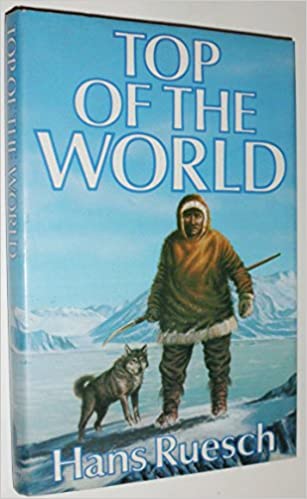The Re-Read List (RRL)
Contrary to those never ending reading lists, inhere we will only share Lindy books that deserve not only to be read but re-read several times. Those books that renew themselves when reopened, in which you may find new hidden details or deeper layers of knowledge.
by
Giovanni H. Uribe & Oliver López-Corona
N.N. Taleb INCERTO.
Oliver López Corona opinion:
Now I have a yuge problem, I’ve tried a couple of times and it is really impossible to make a fair resume of it. In fact I’m convinced that the wisdom density in this book is so high that it is basically incompressible. So don’t expect a nice summary of it, although I’ve included links to The Swedish Investor “5 takeaways” series on the book.
For me, this book is called to be one of the most important ones in history (I’m not exaggerating), it is highly original, of immense erudition, fun and enjoyable to read… in many aspects it has changed my life for good.
Although you will find them as separated books, they are not. Also you may read them in any order, even inside chapters most of the time are stand alone “essays” that interact with each others and from that interaction, emerges the Incerto as a yuge treatise of uncertainty: sources, effects, assessment, conceptualization, how to cope with it, and so on. In some way it is a fractal book in which knowledge flows through multiple scales, sentences, paragraphs, chapters, and volumes.
One of the most interesting features of the Incerto is that Maestro Taleb is not an academic (in the bad sense of the word) nor an intellectual. He made tings in the reverse order… he began as a trader and then, fascinated by his deep observation of randomness manifested in trading, he went back to study a PhD in probability driven by necessity and passion. After many years of practice he became a writer and ultimately a self own scientist.
Also peculiar, the book is about probability as philosophy, probability as logic thinking, probability and risk taking, it has non-fiction (science thinking), fiction and some biographical notes… so it is not only uncompressible, it is also uncategorizable.
The first volume of the Incerto is Fooled by randomness which uncover the central role of randomness in life. Maestro Taleb shows us how naive interpretations of randomness fools us and leads to all sorts of poor decisions. He debunks the meritocracy fallacy by making some great examples out of trading, many years before the now famous Barabasi’s book on the topic “The Formula”.
Already in Fooled by randomness, Taleb presents the key concept of The Black Swan, title of the second volume of Incerto. Inhere maestro introduces us to a new mental set that recognizes the differences of Mediocristan and Extremistan, in which The Black Swan phenomena takes place.
Once that Maestro make the case for the central role of randomness in life, specifically the kind of randomness that we found on Extremistan, including the existence of totally unpredictable, very rare and unexplainable (prospectively): the The Black Swan; Taleb continues asking how can we navigate then in an uncertain world we basically does not understand? The answer to this question is developed in the third and maybe the central, volume of Incerto.
Antifragile introduces a new concept to understand how systems respond to perturbations in terms of concavity (Fragility) or convexity (antifragility) in the payoff space… meaning if a system loses or gains from randomness, volatility and time (the ultimate source of randomness). In this volume Maestro explores Antifragility from different perspectives analysing how to apply them in life, health improvement, business, and so on.
If the The Black Swan deals with the inference problem under uncertainty, or how to reach good reasoning from incomplete, unreliable information; Antifragile is shown as the solution that nature arrived by means of evolutionary processes, so it turns out to be a universal principle in complex systems.
In this sense, one of the most robust solutions under underceintity is not trying to achieve optimal solutions but “soft” solutions known as heuristics, which may be better placed using aphorisms as Taleb does in Incerto’s forth volume: The Bed of Procrustes.
Not included on this edition, but on the Delux Incerto one, we have also Skin in the game, or the ethical aspects of understanding risk, uncertainty and decision making. It again introduces novel concepts or novel interpretation of them, as the case of the practical perspective of ergodicity, explaining for example the differences between risk that happens only once and repeated risk exposure. Skin in the game is not about incentives a la Jobs but about risk asymmetry (i.e. risk externalization) a la Hammurabi.
There is a chapter in Skin in the game where Maestro talks about how modern work is comparable to slavery. I read this chapter on medium before reading anything else about Taleb. It has so profound effect on me, that I refused a Tenure offer in a prestigious university in order to avoid that trap.
For those interested in the probability (as math) foundations of the Incerto we have also the technical counterpart in the volume one: Statistical Consequences of Fat Tails. This is a superb mathematical book, yes technical but still very readable, understandable and even fun.
From Maestro Savater:
– If you are going to read only one philosophy book, let it be «On Liberty» by John Stuart Mill, to know what they have to let you do and what you should allow others to do.
– If you are going to read only one book of poetry, let it be “The Flowers of Evil” by Charles Baudelaire, so that you have an excuse to learn French.
– If you are going to read only one adventure novel, let it be “The Lost World” by Sir Arthur Conan Doyle, so you know where Jurassic Park and the rest of dinomoda came from.
– If you are going to read only one love novel (and misfortune, of course), let it be “Ana Karenina” by Leo Tolstoy, so you know how the Russians spend it.
– If you are going to read only one science fiction novel, let it be «The Island of Doctor Moreau», by Herbert George Wells, after which you will look strange when you look in the mirror.
– If you are going to read only one horror novel, let it be «Pet Cemetery» by Stephen King, so that you give up all your pets.
– If you are going to read only one crime novel, let it be «The Hound of the Baskervilles» by Sir Arthur Conan Doyle, so you can greet, meet and say goodbye to the great Sherlock Holmes.
– If you are going to read only one political book, let it be “The Human Condition” by Hannah Arendt, because she puts everything in her place.
– If you are going to read only one book of stories, let it be “El Aleph” by Jorge Luis Borges.
– If you are going to read only one historical novel, let it be «Life and Destiny» by Vasili Grossman, so that you know what derived from the October Revolution, whose centenary is celebrated this year.
– If you are going to read only one humorous book, let it be «To read while the elevator goes up», by Enrique Jardiel Poncela, because when humor is not short and shocking it stops being humor to become something else (for example, Don Quixote ).
– And if you just want to read a book but one about philosophy and poetry, adventure and horror, history and even politics, read “Moby Dick” by Hermann Melville. If you can, read it every year.
Here we reproduce (for redundancy) a very cool list for 66 books that according with blog author has received good recommendations by Maestro Taleb:
The Count of Monte Cristo by Alexandre Dumas (also rec’d by Rose McGowan)
“I grew up under the cultural bias that ‘Dumas was for middlebrows,’ not literary, hence one should quickly read The Three Musketeers when still in puberty, followed by Dickens, then move on to ‘real’ and ‘literary’ novelists like Flaubert, Zola, or, perhaps Balzac, as a preparation for, some day, the Russians… So it was the most pleasant surprise that, during the lockdown of COVID-19, I accidentally got into this. Owing to the early developments around the pandemic, I could not easily concentrate on the usual material, so looking for a historical novel, I opened the book and could not stop. In spite of its length is built like a short (theater) play: there is not a single detail at any point that doesn’t later on come to count in the resolution – and you know it instinctively so you do not miss anything. It moves very fast, but is… 1600 pages long (I read the French version). I cannot vouch for this translation (as I said I read it in the original), but I have not read a more absorbing novel written in the past 180 years. Read old books.” -NT
Order without Design: How Markets Shape Cities by Alain Bertaud
“Bertaud knows cities inside out. It is a pleasure to read something by a person who knows his subject in so much depth. He reveals how planning can mess up cities, how the market is more intelligent than planners, etc. Aside from the potent Hayekian argument, Bertaud gave me some intuition for future real estate investments: a city is a labor market since people change jobs and companies add and subtract employees. Any form of planning needs to accommodate such a fact. And if cities are principally labor markets, they should both concentrate and differentiate along with globalization.” -NT
The French Revolution and What Went Wrong by Stephen Clarke
“I spent part of my adult life falling asleep trying to read Burke’s Reflections on the Revolution in France, advancing at a pace of 10 pages every 2 years and three months (two pages are enough to induce coma). This book does the same job, but is so much fun to read. The author, visibly writes with an attitude. A lot of myths being debunked. You will never hear celebrations of July 14 without a smirk.” -NT
Who We Are and How We Got Here: Ancient DNA and the New Science of the Human Past by David Reich
“This is a monument, not just a book. And the beginning of a new cultural program. On a scale of 0 to 100, paternity tests count as 99.99 and written/oral history should count for .01. Apply that to populations. That’s plain statistics/probability. We are seeing science in action: information theory displaces BS, the handwaving just so stories we got from historians.” -NT
The Elements of Statistical Learning: Data Mining, Inference, and Prediction by Trevor Hastie, Robert Tibshirani & Jerome Friedman
“Very comprehensive, sufficiently technical to get most of the plumbing behind machine learning. Very useful as a reference book (actually, there is no other complete reference book). The authors are the real thing (Tibshirani is the one behind the LASSO regularization technique).” -NT
Deep Learning by Ian Goodfellow, Yoshua Bengio & Aaron Courville
“Very clear exposition, does the math without getting lost in the details. Although many of the concepts of the introductory first 100 pages can be found elsewhere, they are presented with remarkable cut-to-the-chase clarity.” -NT
Rational Decisions by Ken Binmore
“This is a must read as it presents a comprehensive set of the principles and axioms behind neo-classical economics. Binmore is a mathematician, hence everything is mapped properly, clearly, and thoroughly.” -NT
Perilous Interventions: The Security Council and the Politics of Chaos by Hardeep Singh Puri
“This is an outstanding book on the side effects of interventionism, written in extremely elegant prose and with maximal clarity. It documents how people find arguments couched in moralistic terms to intervene in complex systems they don’t understand. These interventions trigger endless chains of unintended consequences – consequences for the victims, but none for the interventionistas, allowing them to repeat the mistake again and again. Puri, as an insider, outlines the principles and legal mechanisms, then runs through the events of the past few years since the Iraq invasion; each one of his chapters are models of concision, presenting the story of Ukraine, Syria, Lybia, and Yemen, among others, as standalone briefings to the uninitiated. It was high time that somebody in international affairs has approached the problem of ‘iatrogenics’, i.e. harm done by the healer. This book should be mandatory reading to every student and practitioner of foreign affairs.” -NT
Idea Makers: Personal Perspectives on the Lives & Ideas of Some Notable People by Stephen Wolfram
“This book, Idea Makers, is written from an insider. It is the real thing on several accounts. Primo, Wolfram deserves to be in the book as an ‘idea maker’, in his own right. Secondo, Wolfram is the developer of a new way to do (useful) mathematics, an entirely new method, which allows us to tinker with mathematics, something that is an anathema to purists. Thus he depicts Ramanujan, not with the usual mathematical prism of the theorem crowds, but as someone who, starting with intuitions, does experiments till a mathematical identity feels right.” -NT
The Secret of Fatima by Peter J Tanous
“Masterly! This is the page turner par excellence; every new page brings some surprise and it was impossible for me to put the book down. I even read some of it during elevator rides, not being able to resist. And truly sophisticated: Nobody but Peter Tanous would have imagined to cross James Bond with a Catholic priest.” -NT
Birth of a Theorem: A Mathematical Adventure by Cédric Villani
“This book takes us through the formulation of the theorems in ‘On Landau damping’ by Clément Mouhot and Cédric Villani. Villani is playful in real life, his research is playful, and the book is playful. This is a gem for a singular reason. One sees exactly how Villani (or a pure mathematician) goes from abstract to abstract without ever exiting the world of pure and symbolic mathematics, even though the subject concerns a very concrete real-world topic.” -NT
Modern Aramaic-English/English-Modern Aramaic Dictionary & Phrasebook: Assyrian/Syriac by Nicholas Awde
“This book in the Latin alphabet makes both Swadaya and Turoyo alive and easy to read, with all manner of real-world expressions. One can use it to supplement scholarly studies, or just to figure out how modern people speak our ancient language.” -NT
The Tyranny of Experts: Economists, Dictators, and the Forgotten Rights of the Poor by William Easterly
“The point that top-down development methods are great on paper but have not produced benefits (‘so far’) is a point Easterly has made before, heavily influencing yours truly in the formation his own argument against naive interventionism and the collection of ‘humanitarians’ fulfilling their personal growth and shielding themselves from their conscience… This is more powerful: the West has been putting development ahead of moral issues, patronizingly setting aside the right of the people to decide their own fate, including whether they want these ‘improvements’, hence compounding failure and turning much of development into an agenda that benefits the careers (and angst) of ‘humanitarians’, imperial policies, and, not least, local autocrats *without* any moral contribution. Talking about a sucker problem.” -NT
Modelling Extremal Events: for Insurance and Finance (Stochastic Modelling and Applied Probability) by Paul Embrechts, Claudia Klüppelberg & Thomas Mikosch
“Now this book is the bible for the field. It has been diligently updated. It is complete, in the sense that there is nothing of relevance that is not mentioned, treated, or referred to in the text. My business is hidden risk which starts where this book stops, and I need the most complete text for that.” -NT
The Kelly Capital Growth Investment Criterion: Theory and Practice by Leonard C. MacLean, Edward O. Thorp & William T. Ziemba
“It is almost exhaustive; many great thinkers in Information theory and probability (Ed Thorpe, Leo Breiman, T M Cover, Bill Ziemba) are represented… even the original paper by Bernouilli. Buy 2 copies, just in case you lose one. This book has more meat than any other book in decision theory, economics, finance, etc.” -NT
A Few Lessons from Sherlock Holmes by Peter Bevelin
“We Sherlock Holmes fans, readers, and secret imitators need a map. Here it is. Peter Bevelin is one of the wisest people on the planet. He went through the books and pulled out sections from Conan Doyle’s stories that are relevant to us moderns, a guide to both wisdom and Sherlock Holmes. It makes you both wiser and eager to reread Sherlock Holmes.” -NT
The Science of Conjecture: Evidence and Probability before Pascal by James Franklin
“This book stands above, way above the rest: I’ve never seen a deeper exposition of the subject, as this text covers, in addition to the mathematical bases, the true philosophical origin of the notion of probability. In addition Franklin covers matters related to ethics and contract law, such as the works of the medieval thinker Pierre de Jean Olivi, that very few people discuss today.” -NT
Probability, Random Variables and Stochastic Processes by Athanasios Papoulis & S. Unnikrishna Pillai
“When readers and students ask to me for a useable book for nonmathematicians to get into probability (or a probabilistic approach to statistics), before embarking into deeper problems, I suggest this book by the Late A. Papoulis. I even recommend it to mathematicians as their training often tends to make them spend too much time on limit theorems and very little on the actual ‘plumbing.’” -NT
Mathematics: Its Content, Methods and Meaning by A. D. Aleksandrov, A. N. Kolmogorov & M. A. Lavrent’ev
“There is something admirable about the school of the Russians: they are thinkers doing math, with remarkable clarity, minimal formalism, and total absence of unnecessary pedantry one finds in more modern texts (in the post Bourbaki era). This is of course surprising as one would have expected the exact opposite from the products of the communist era. Mathematicians should be using this book as a model for their own composition. You can read it and reread it. Professors should assign this in addition to modern texts, as readers can get intutions, something alas absent from modern texts.” -NT
Probability Theory (Courant Lecture Notes) by S. R. S. Varadhan
“This book gives a complete overview of the basis of probability theory with some grounding in measure theory, and presents the main proofs. It is remarkable because of its concision and completeness: visibly prof Varadhan lectured from these notes and kept improving on them until we got this gem. There is not a single sentence too many, yet nothing is missing. For those who don’t know who he is, Varadhan stands as one of the greatest probabilists of all time. Learning probability from him is like learning from Aristotle.” -NT
Models.Behaving.Badly.: Why Confusing Illusion with Reality Can Lead to Disaster, on Wall Street and in Life by Emanuel Derman
“Emanuel Derman has written my kind of a book, an elegant combination of memoir, confession, and essay on ethics, philosophy of science and professional practice. He convincingly establishes the difference between model and theory and shows why attempts to model financial markets can never be genuinely scientific. It vindicates those of us who hold that financial modeling is neither practical nor scientific. Exceedingly readable.” -NT
Body by Science: A Research Based Program to Get the Results You Want in 12 Minutes a Week by John Little & Doug McGuff
“I owe a lot to this book. I figured out the value of intensity training and maximizing recovery. I use the ideas but with minor modifications (my own personal workout is entirely based on free weights and barbells, but I incur – and accept – a risk of injury). I have been applying the ideas for more than three years. Just get over the inhibitions (and illusions of control) and accept the idea of training less.” -NT
The Hour Between Dog and Wolf: Risk Taking, Gut Feelings and the Biology of Boom and Bust by John Coates
“Great book. I ignored the connection to financial markets while reading it. But I learned that when under stress, one should seek the familiar. Bravo!” -NT
The Opposing Shore by Julien Gracq
“Until I read this book, Buzzati’s Il deserto dei tartariwas my favorite novel, perhaps my only novel, the only one I cared to keep re-reading through life. This is, remarkably a very similar story about the antichamber of anticipation (rather than ‘the antichamber of hope’ as I called Buzzati’s book), but written in a much finer language, by a real writer (Buzzati was a journalist, which made his prose more functional); the style is lapidary with remarkable precision; it has texture, wealth of details, and creates a mesmerizing athmosphere. Once you enter it, you are stuck there. I kept telling myself while reading it: ‘this is the book.’ It suddenly replaced the deserto.” -NT
Bull by the Horns: Fighting to Save Main Street from Wall Street and Wall Street from Itself by Sheila Bair
“I don’t have time for a full review for now; all I have to say is that we have the account of a person who says it the way it was, revealing the types of truths that don’t fit the New York Times and others pawns. When history is written, this will be used, not the spin by the bankers’ slaves and soldiers (Geithner, Rubin et al.) Bravo Sheila!” -NT
Information: The New Language of Science by Hans Christian von Baeyer
“If you want an introduction to information theory, and, in a way, probability theory from the real front door, this is it. A clearly written book, very intuitive, explains things, such as the Monty Hall problem in a few lines. I will make it a prerequisite before more technical great books, such as Cover and Thompson.” -NT
Free The Animal: How To Lose Weight & Fat With The Paleo Diet by Richard L. Nikoley
“A charming primer on the paleo idea, with an illustration through the author’s own life. I read it in one sitting.” -NT
Why Everyone (Else) Is a Hypocrite: Evolution and the Modular Mind by Robert Kurzban
“This is a great synthesis of the modularity approach to cognitive science. It covers the entire field and has the right footnotes for the patches. The style is readable, & the author has an attitude (with is a very good thing, but his jokes are often bland, not aggressive enough). While I strongly disagree with his treatment of morality (I am deontic), I can safely say, so far, that this is not just one of the best books in cognitive science, but certainly one of the most readable.” -NT
Explaining Social Behavior: More Nuts and Bolts for the Social Sciences by Jon Elster
“I read this book twice. The first time, I thought that it was excellent, the best compendium of ideas of social science by arguably the best thinker in the field. I took copious notes, etc. I agreed with its patchwork-style approach to rational decision making. I knew that it had huge insights applicable to my refusal of general theories [they don’t work], rather limit ourselves to nuts and bolts [they work]. Then I started reading it again, as the book tends to locate itself by my bedside and sneaks itself in my suitcase when I go on a trip. It is as if the book wanted me to read it. It is what literature does to you when it is at its best. So I realized why: it had another layer of depth –and the author distilled ideas from the works of Proust, La Rochefoucault, Tocqueville, Montaigne, people with the kind of insights that extend beyond the ideas, and that makes you feel that a reductionist academic treatment of the subject will necessary distort it [& somehow Elster managed to combine Montaigne and Kahneman-Tversky]. So as an anti-Platonist I finally found a rigorous treatment of human nature that is not Platonistic – not academic (in the bad sense of the word).” -NT
The Discovery of France: A Historical Geography from the Revolution to the First World War by Graham Robb
“But I would like to add the following. This is the most profound examination of how nationality is enforced on a group of people, with the internal colonization process and the stamping out of idiosyncratic traits. As someone suspicious of government and state control, I was wondering how France did so well in spite of having a big government. This book gave me the answer: it took a long time for the government and the ‘nation’ to penetrate the depth of deep France, ‘la France profonde.’” -NT
Good Calories, Bad Calories: Challenging the Conventional Wisdom on Diet, Weight Control, and Disease by Gary Taubes
“Gary Taubes is a true empiricist. I can’t believe people hold on to the Platonicity of the thermodynamic theory of diet (calorie in = calorie out). Read it twice, once for the diet, once a a rich document in the history of science.” -NT
Seeking Wisdom: From Darwin to Munger, 3rd Edition by Peter Bevelin
“A wonderful book on wisdom and decision-making written by a wise decision-maker. This is the kind of book you read first, then leave by your bedside and re-read a bit every day, so you can slowly soak up the wisdom. It is sort of Montaigne but applied to business, with a great investigation of the psychological dimension of decision-making. I like the book for many reasons – the main one is that it was written by a practitioner who knows what he wants, not by an academic.” -NT
The Doctrine of Deification in the Greek Patristic Tradition by Norman Russell
“I initially bought this book as I was curious about the differences between Eastern & Western traditions, particularly with the notion of theosis – the deification of man. This book goes far deeper, and covers pre-Christian practices (like Stoic thoughts, the deifications of Kings, Roman Emperors, that of private citizens who committed symbolic acts – such as Antinous, Hadrian’s obsession, who drowned to ‘save’ mankind and other sotirologies).” -NT
Statistical Models: Theory and Practice by David A. Freedman
“This book is outstanding in the following two aspects: 1) It is of immense clarity, embedding everything in real situations, 2) It uses the real-life situation to critique the statistical model and show you the limit of statistic. For instance, he shows a few anecdotes here and there to illustrate how correlation between two variables might not mean anything causal, or how asymptotic properties may not be relevant in real life. This is the first statistics book I’ve seen that cares about presenting statistics as a tool to GET TO THE TRUTH.” -NT
Happy Accidents: Serendipity in Modern Medical Breakthroughs by Morton A. Meyers
“It is a MUST read. Please go buy it. Read it twice, not once. Although the author does not take my drastic ‘stochastic tinkering’ approach, he provides all kind of empirical evidence for the role of design. He does not directly discuss the narrative fallacy (q.v.) and the retrospective distortion (q.v.) but he certainly allows us to rewrite the history of medicine.” -NT
Financial Derivatives: Pricing, Applications, and Mathematics by Jamil Baz & George Chacko
“It is a condensed, but extremely deep , and complete exposition of the subject of theoretical finance. No financial book has the clarity of this text. Other quant books do not have such notions as ‘pricing kernel’ and economic theoretical matters. I would recommend it as a necessary piece of the ‘quant’ toolkit. Every quant should have it as a background tool as the usual quant literature is standalone and devoid of these concepts.” -NT
Thinking and Deciding by Jonathan Baron
“People vote with their wallet – particularly when they do it a second time, when they REpurchase. Those who believe in the ‘revelation of preferences’ should note that there are books one buys again when a copy is lost – particularly when they are read cover to cover. I am buying another copy of this book as mine was lost or misplaced. That should speak volumes.” -NT
Critical Phenomena in Natural Sciences: Chaos, Fractals, Selforganization and Disorder: Concepts and Tools (Springer Series in Synergetics) by Didier Sornette
“After spending some time working the derivations on scalable laws, extreme value theory, renormalization groups in this book, I elected to use it as my textbook. There is no equivalent. I have a dozen such yellow manuals; this one is complete and ultimately clearest. I do not know of a better textbook.” -NT
The Wisdom Paradox: How Your Mind Can Grow Stronger As Your Brain Grows Older by Elkhonon Goldberg
“If you like the thinker’s prose, the so-called ‘romantic science,’ a style attributed to the Russian neuroscientist A. R. Luria, which consists in publishing original research in literary form, you would love this book. Clearly intellectual scientists are vanishing under the weight of the commoditization of the discipline. But once in a while someone emerges to reverse such setbacks. Goldberg, who was the great Luria’s student and collaborator, is even more colorful and fun to read than the master. He is egocentric, abrasive, opinionated, and colorful.” -NT
The Sunday Philosophy Club: An Isabel Dalhousie Mystery by Alexander McCall Smith
“This book is about Applied Ethics, a subject about which the author seems to know a bit. It also makes you feel like leading a quite thinking life in Edinburgh.” -NT
How Nature Works: The Science of Self-organized Criticality by Per Bak
“This book is a great attempt at finding some universality based on systems in a ‘critical’ state, with departures from such state taking place in a manner that follows power laws. The sandpile is a great baby model for that. Some people are critical of Bak’s approach, some even suggesting that we may not get power laws in these ‘sandpile’ effects, but something less scalable in the tails. The point is :so what? The man has vision.” -NT
Social Cognition: Making Sense of People by Ziva Kunda
“I spent some time looking for a simple bedside aggregation of the various topics associated with the psychology of decision making and the various perceptual biases, without finding much. Most of the books are excellent; but, aside from this one (and Jon Baron’s) they are usually compilation of original research. I like to have a readable consolidation of the material not far from my figertips. I was lucky to have found this book, which provides a wonderful and comprehensive coverage of the topics. It is limpid, precise, illustrative, showing a wonderful clarity of mind.” -NT
The (Mis)behavior of Markets by Benoit Mandelbrot & Richard L Hudson
“I have been involved in the professional practice of uncertainty for almost all of my adult life. I’ve seen and read books and papers on the subject of deviations, with ‘this is interesting’ here and there. I closed this book feeling that it was the first book in economics that spoke directly to me. Not only that, but this astonishing simplicity, realism, and relevance of the subject makes it the only work in finance I’ve read that seemed to make sense.” -NT
The Status Syndrome: How Social Standing Affects Our Health and Longevity by Michael Marmot
“Marmot spent years poring over data; he left no stone unturned and is well read in the general literature on human nature. This idea of people living longer when they exert control over their lives has not spread yet. That people lead longer lives when they trust their neighbors and feel part of a community is far reaching. Just think of the implications on social justice etc. Also think that everything you learn on human preferences and well-being in both economics and medicine is either incomplete (medicine) or bogus (economics). The book is well written, humorous at times, and rigorous – it reads like a well-translated scientific paper.” -NT
The Paradox of Choice: Why More Is Less by Barry Schwartz
“I find it clear in its exposition of the problems of modern psychology. In addition to the ideas of ‘satisficing,’ it displays the major ideas in the psychology of happiness (hedonic treadmill), along with the theories of choice & decision making. Clearly this is not for scholars as it is extremely diluted and slow at times; this is a popular science book. Still, I could not put it down.” -NT
The Dream of Reason: A History of Philosophy from the Greeks to the Renaissance by Anthony Gottlieb
“I could not put it down. It hit me at some point that I was at the intersection of readability and scholarship. Clearly the value of this book lies beyond its readability: Gottlieb is both a philosopher and a journalist (in the good sense), not a journalist who writes about philosophy. He investigates and provides a fresh look at the material.” -NT
Intellectuals in the Middle Ages by Jacques Le Goff
“Excellent, be it only for the presentation of the difference between the pompous scholastic thinker laboring in the academy and the other nonacademic humanist laboring in the the ‘luxe calme et volupte’ of his study. Another of the attributes is the readability of the work. Le Goff is a gifted writer.” -NT
Kant and the Platypus: Essays on Language and Cognition by Umberto Eco
“When I started reading the book I was taken aback by the combination of depth and the vividness of the style. Eco is sprightly and alive, something that cannot be said of many philosophers dealing with the subject of categories.” -NT
Confessions of a Philosopher: A Personal Journey Through Western Philosophy from Plato to Popper by Bryan Magee
“This is not a popularization/adult-education style presentation. Magee sees things form the inside; it is his own formation of philosophical ideas & techniques that we witness. Magee was close enough to Popper to present us with his ideas first-hand (nobody reads Popper; people read about him). He also debunks a few idiotic myths about Wittgenstein as an atomist (Magee read W and realized that people read commentary on him, rarely the original). Magee writes with the remarkable clarity of the English philosophers/thinkers.” -NT
Invariances: The Structure of the Objective World by Robert Nozick
“The book is like a manual for a new regimen in philosophy. It reviews everything from epistemology to the logic of contingency, with insights here and there about such topics as the observer biases (about computing probabilities when our existence has been linked to a particular realization of the process). I am not a philosopher but a probabilist; I found that this book just spoke to me. It certainly rid me of my prejudice against modern philosophers.” -NT
A History of the Mind: Evolution and the Birth of Consciousness by Nicholas Humphrey
“Humphreys is the only person I know of who can work on nonhuman primates, write philosophy, and edit a literary magazine. The latter shows in this writing: I read this book in a single sitting. You may not agree with the ideas on consciousness (I don’t) but you get a clear exposition of all the work from Descartes to McGinn.” -NT
Bull!: A History of the Boom, 1982-1999: What drove the Breakneck Market – and What Every Investor Needs to Know About Financial Cycles by Maggie Mahar
“Maggie Mahar had the courage to take a look at what was behind all of this religious belief in markets. Clearly I do not understand how she was able to work as a journalist when she has the attitude and mindset of a truth-seeker. I spent some time looking at the difference between her book and Lowenstein’s: not even possible to start comparing. One needs to be a trader to value her work.” -NT
I Think, Therefore I Laugh by John Allen Paulos
“This is a great book for a refresher in analytical philosophy: pleasant, clear. Great training for people who tend to forget elementary relationships.” -NT
The Making of a Philosopher: My Journey Through Twentieth-Century Philosophy by Colin McGinn
“Colin McGinn teaches us that we need nevertheless to master the art of clarity of both thought and exposition. He writes with perfect clarity: a clear, unburdened, unaffected, UnFrench UnGerman philosophical prose. The book has a presentation of the Kripke idea of naming as necessity of such clarity that I felt actually smart reading it.” -NT
Straw Dogs: Thoughts on Humans and Other Animals by John Gray
“This book is worth 4 stars because here we have a literary intellectual who manages to break through the mud in his knowledge. It would have been worth 5 stars had Gray read a few more works in scientific thought beyond Darwin. Anyway I am very impressed with a literary intellectual capable of this empirical and realistic view of man.” -NT
Mapping the Mind by Rita Carter
“I picked up this book again last weekend and was both astonished at a) the ease of reading , b) the clarity of the text and c) the breadth of the approach! I was looking for a refresher as I am trying to capture a general idea of the functioning of that black box and found exactly what I needed without the excess burden of prominent textbooks. Very pedagogical.” -NT
The Mind Doesn’t Work That Way by Jerry A. Fodor
“This critique of the computational theory of mind and the pan-adaptionist tradition is clearly so honest that it goes after the ideas promoted by Fodor’s own 1983 watershed book The Modularity of Mind. In brief the essay is an attack on massive modularity by saying that there are things after all that escape the programming (encapsulation and opacity are key: how can we talk about something OPAQUE? We know nothing about a few critical things…). Granted the book is horribly written (that is Fodor’s charm after all) but his argumentation is so ferocious that he ends up loud & clear. The man is critical of his own ideas, and of the current in thought that he helped create – one may use Fodor-1 against Fodor-2. Perhaps persons I hold in highest respect are those who go after their own ideas!” -NT
Consciousness: An Introduction by Susan Blackmore
“I am glad to find a complete book dealing with all aspects of consciousness in CLEARLY written format, with graphs and tables to facilitate comprehension. The book covers everything I had seen before from Artificial Intelligence to Philosophy to Neurology to Evolutionary Biology. Say one wants to get an idea of Dan Dennett’s theory of consciousness (without having to get through Dennett’s circuitous, unfocused and evasive prose) or Searle’s Chinese room argument or Turing’s test or Chalmer’s position or Churchland’s neurophilosophy or a presentation of research on the neural correlates of consciousness…Everything I could think about is there.” -NT
Mean Genes: From Sex to Money to Food: Taming Our Primal Instincts by Terry Burnham & Jay Phelan
“I read the book once when it came out. Since then I’ve had the chance to reread it a few times, discovering more and more layers as my interests take me in new directions (for instance the discussion on the happiness treadmill goes to the core of the current discussions in the economics of happiness). I now carry a copy on my trips as I can kill time in airports by perusing random sections. The book is so readable as to perhaps set a standard.” -NT
Why Stock Markets Crash: Critical Events in Complex Financial Systems by Didier Sornette
“The author aside from the problem of crashes presents an insightful exposition of tipping points. I don’t know why his approach makes it clearer and deeper than those of Watts and Barabasi – is it due to his using financial markets as a base? or his being an expert at fat-tailed dynamics? His work builds on the ‘abyssus abyssum invocat’ (panic begets panics) and the dynamics of compounding disequilibria. In addition the notion of ‘CRITICAL POINT’ is made very clear.” -NT
The New Financial Order: Risk in the 21st Century by Robert J. Shiller
“Robert Shiller has the remarkable ability to think independently and the courage to propose ideas that to middlebrow thinkers may sound speculative. Think of what your reaction would have been had someone discussed risk sharing (insurance) before it became popular. A lunacy people would have thought. Most risk management is like that: we think backwards with the benefit of past history and find these ideas obvious. They were not at the time. Throughout his career Shiller stood for unpopular ideas and was proven right (his 1981 paper on volatility, his 2000 discussion of the bubble).” -NT
Strangers to Ourselves: Discovering the Adaptive Unconscious by Timothy D. Wilson
“This is a clearly written presentation of our inability to forecast our own behavior and to predict our emotional reactions to positive and negative events. One would think that the repetition of experiences with consistent forecasting biases would lead to some correction but this is not the case.” -NT
No Bull: My Life In and Out of Markets by Michael Steinhardt
“The man is one of the greatest traders in history. There are a few jewels in there.” -NT
The Statistical Mechanics of Financial Markets by Johannes Voit
“The book in short provides an excellent perspective on the statistical approach to asset price dynamics. Very clear and to the point.” -NT
The Tartar Steppe by Dino Buzzati (also rec’d by Jorge Luis Borges)
“I never understood why the book never made it in the Anglo-Saxon world. Il deserto is one of the 20th century’s masterpieces.” -NT
A Guide to Econometrics – 4th Edition by Peter E. Kennedy
“The best intuition builder in both statistics and econometrics. I have been reading the various editions through my career. Please, keep updating it, Peter Kennedy!” -NT
Physics, my own list
For everyone interested in Physics, better start with Conceptual Physics:
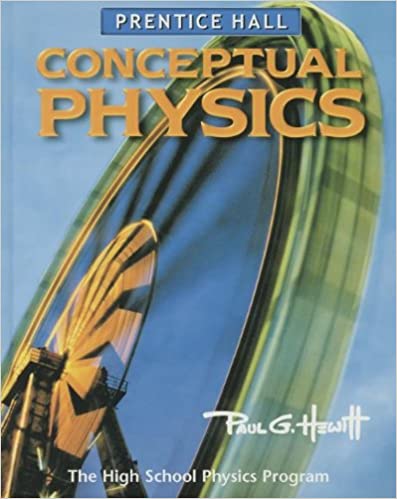
Then for those in STEM with some mathematical background you may proceed with the notorious Feynman Lectures
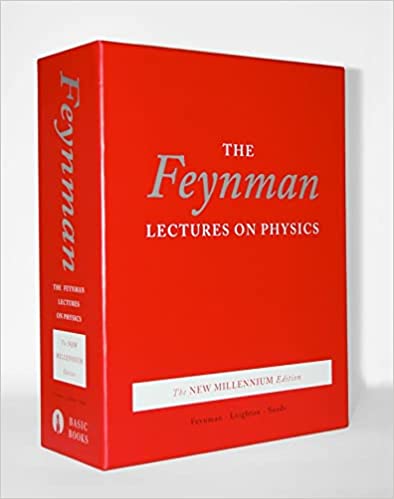
Then, if you are studying Physics prefesionally, the only book(s) you really need is the Landau’s Course of Theoretical Physics

As physics in moving to a informational framework, David MacKay’s “Information theory, inference and learning algorithms” is the one.

Finally for some of the more excitement and innovational approach of modern physics,
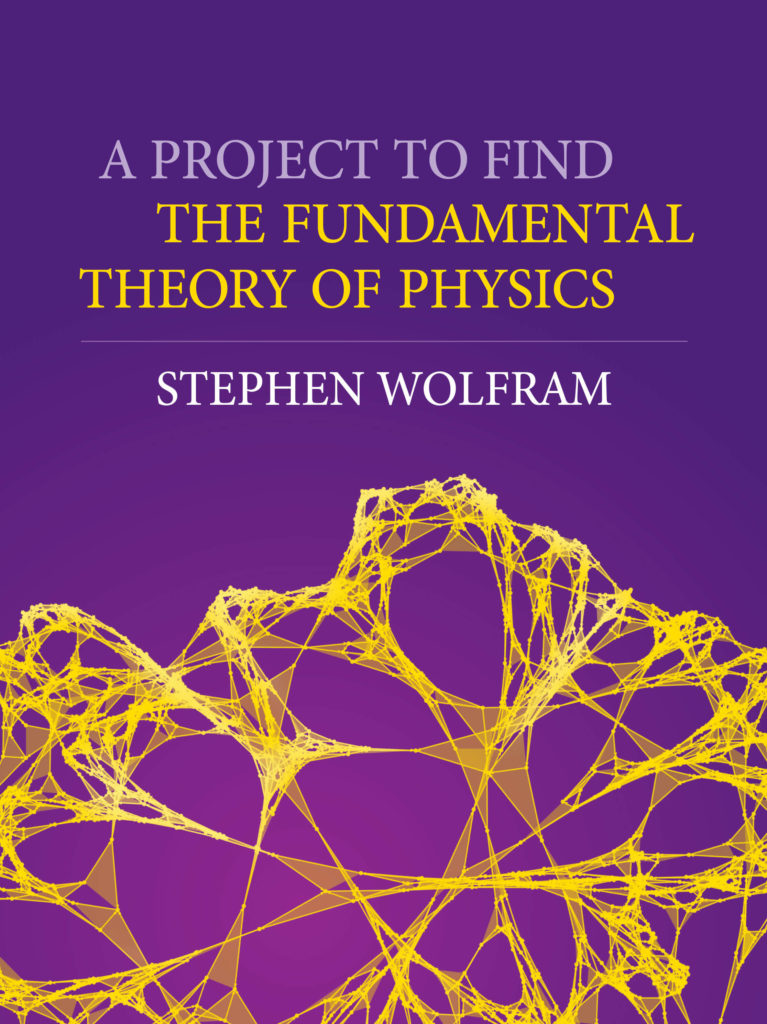
Complementary books:
For sustainability, this is the one… specially if interested in renewable energy, “Sustainable energy without the hot air“, again by the grate David MacKay

Mathematics, my own list
The core for any mathematician or Physicist is the Courant & John “Introduction to Calculus and Analysis (I,II)”
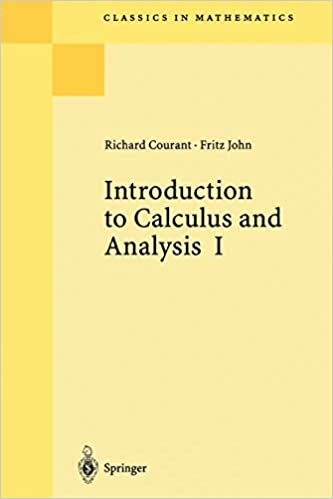
And, “Mathematics: Its Content, Methods and Meaning (3 Volumes in One)“, by Kolmogorov and others (recommended by N.N.Taleb)
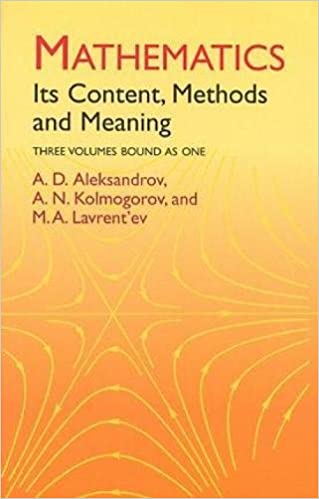
For learning probability in a non-naive way, Jaynnes “Probability the logic of science“
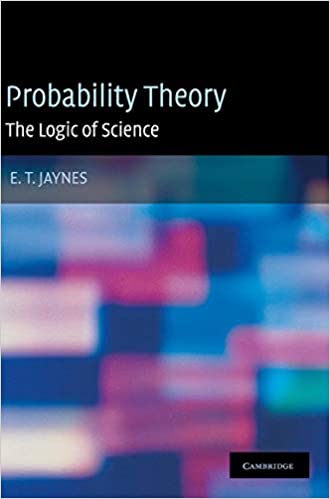
A true classic by Gilbert Strang, “Introduction to linear algebra“
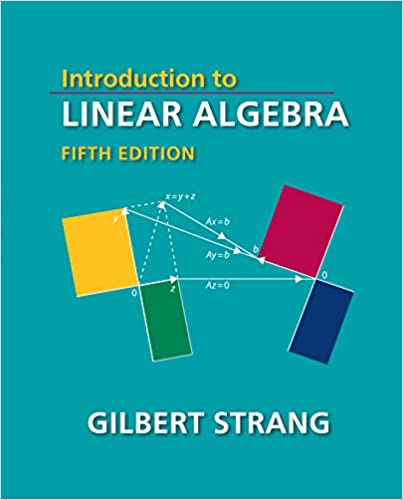
As we like probability a lot the Feller, “An Introduction to Probability Theory and Its Applications“
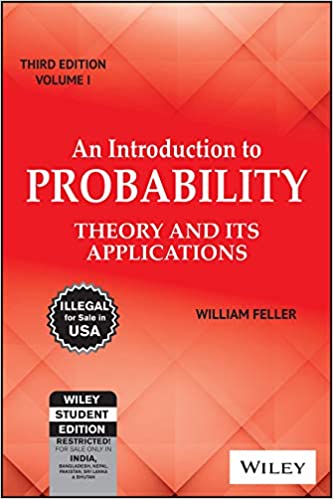
This one I haven’t read it yet but highly recomenended, Infinite Powers: How Calculus Reveals the Secrets of the Universe, by Strogatz
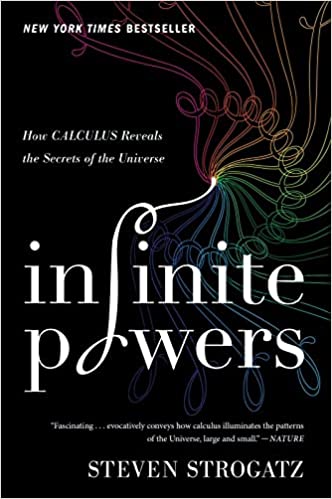
Others
One of the greatest human adventures “SOLO” by Reinhold Messner
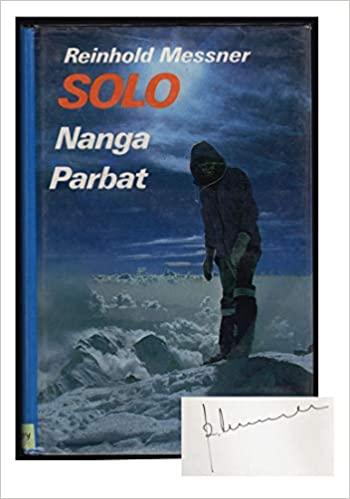
For those who like medicine but are not doctors, from N.N. Taleb

This is a beautiful book
